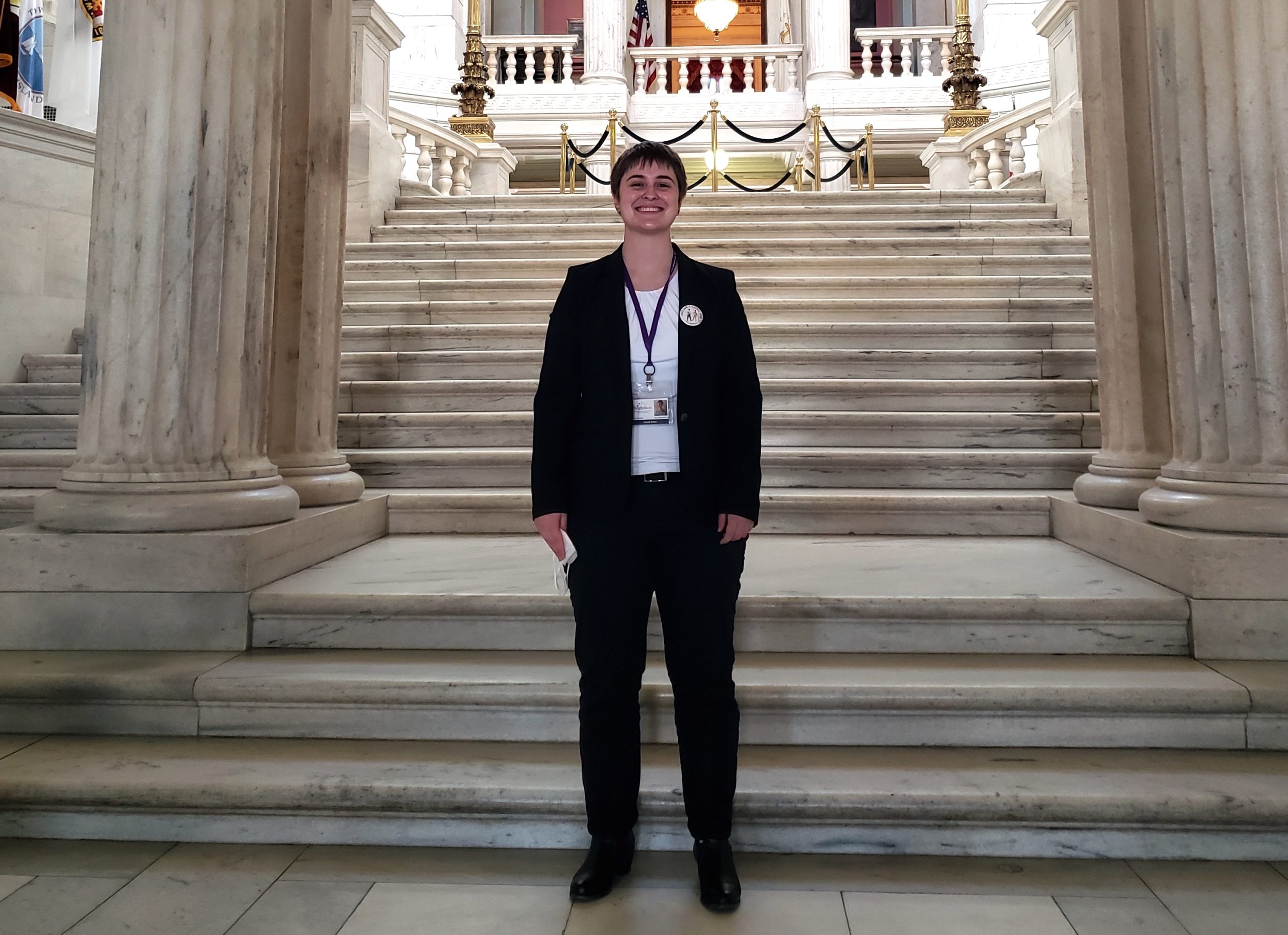Sarah Behm works to increase wages for elementary school teachers
Working in and outside of the classroom, senior human development and family science major Sarah Behm has helped take steps in high quality of early education. PHOTO CREDIT: uri.edu
Senior at the University of Rhode Island Sarah Behm is intersecting her internships and education to spark change for early childhood educators.
Behm is majoring in Human Development and Family Science. She started her college career at the Community College of Rhode Island and worked as an early childhood educator when she realized she needed a change.
“I took a step back from being a teacher because of all of the issues around not having the support I needed to keep going forward, both financially and emotionally,” Behm said.
Behm realized she would need to go higher than local schools in order to spark the change that she wanted to see.
She started off working on multiple research projects with Sue Adams, professor and chair of human development and family sciences as a student at URI. These projects include working with both of URI’s child development centers located in Kingston and Providence.
The first research project Behm worked on was with the Registered Apprentice Program, which she said speaks out to advocate for infant and toddler teachers.
“The program gives teachers the resources they need to increase pay and the quality of their classrooms,” Behm said.
In addition to working on research, she has two internships that work on childhood education issues. Her internship is for the Rhode Island Association for Young Children (RIAYC) where she makes an effort to help out in all areas of advocacy. She works on creating Canva posts about relevant topics for social media, research and office work to get a comprehensive experience.
Her second internship is working on research and advocacy for The University of Rhode Island.
Recently, Behm took her research and experience and took action testifying in front of the Rhode Island House Finance Committee.
“Testifying can be nerve-racking, but it is so important to use your voice in important situations,” Behm said. “Being in the classroom first hand, I’ve experienced what early childhood educators go through on a day to day and especially with the pandemic, it’s gotten worse.”
Behm has testified about her personal experiences as an educator and hopes it will be enough to persuade and exemplify that her experiences are happening universally and change needs to be made.
“The childhood education field is one that is generally under-resourced,” Adams said. “The bigger issue in a socio-political context is that we do not subsidize education the way other fields are subsidized.”
Behm has brought up the struggles early educators face on a daily basis including trying to raise a family on less than twelve dollars an hour and how those struggles have gotten worse with the pandemic.
According to Adams taking a job that pays one dollar more can make a significant difference for many families which leads to a lack of retention in the field.
“I am not just working to create change for me but for all of the people I worked with, all of the kids I worked with, my nephew and anyone in the field,” Behm said.
While Behm is not sure of her plans post-graduation she plans to continue developing her advocacy work prior to attending graduate school.





